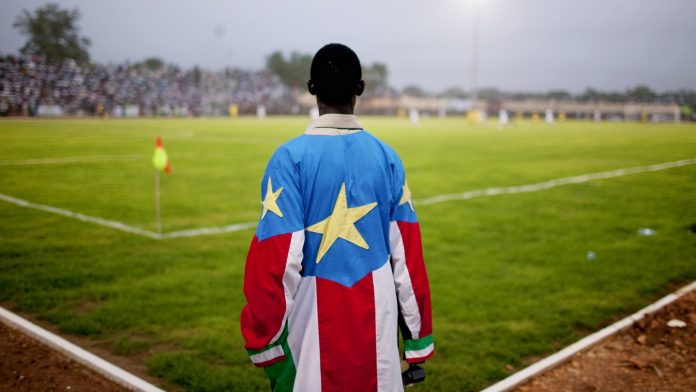
It is a minor miracle that countries have kept to their borders as resentments simmer
A remarkable thing about Africa is just how stable its borders have been. Unlike Europe, where frontier-altering wars raged for centuries, where Yugoslavia shattered into pieces just a generation ago, and where even today the integrity of countries such as Spain and the UK is hardly settled, Africans have mostly accepted their borders — for good or ill. This is despite the fact that the continent’s modern states were carved out at the Berlin Conference of 1884-85 by colonialists with little knowledge of the ethnic, political or geographic realities.
Countries were cobbled together from often dozens, even hundreds, of ethnic and linguistic groups, many of which, like the Ashanti, the Yoruba or the Buganda, had been distinct, sophisticated states in their own right before the arrival of Europeans. That leaders like Julius Nyerere of Tanzania and Kwame Nkrumah of Ghana, imperfect though they were, managed to fashion coherent nation states from this hodgepodge is a much-overlooked achievement.
Not all borders have held. Eritrea became a separate nation in 1993 after a protracted war with Ethiopia. South Sudan won its independence from Sudan in 2011 with so-far disastrous results. Somaliland has been a de facto autonomous state since 1991 when it unilaterally declared independence after the collapse of the Siad Barre regime plunged Somalia into chaos.
Africa has seen multiple civil wars and assorted secessionist movements arising from the illogicality of these borders. In the immediate aftermath of independence, both Katanga, the mineral-endowed Congolese province, and Biafra, in south-east Nigeria, sought to break away. When Biafran independence was crushed by the Nigerian military in the war of 1967-70, it sent a message around the continent about the high cost of separatism.
Yet Africa today is not immune from the secessionist sentiment that has sprung up from Catalonia to Kurdistan and from Scotland to Quebec. In anglophone Cameroon, once again in Biafra and, unusually, even in western Kenya, separatist cries have gone up. Though each situation is different, all stem from a failure of central government to give political, economic and cultural expression to groups that find themselves outside the fulcrum of power.
In Cameroon, long-simmering resentments between the English-speaking minority and the French-speaking majority have bubbled over. English speakers, who make up roughly a fifth of the population, have long felt marginalised, a sentiment that has intensified with crude central government attempts to flood the courts and schools with French speakers. As in other regions where one group feels discriminated against, culturally or economically, moderates have pushed for greater federalism while hardliners, unfurling the blue flag of Ambazonia, are urging all-out independence.
Though each situation is different, all stem from a failure of the central government to give political, economic and cultural expression to groups that find themselves outside the fulcrum of power
After their defeat, Biafrans mostly got on with living in a unified Nigeria, a particularly contorted creation of British colonialism. But recently, Biafran secessionism has reawakened and been met with the full, often vicious, force of the state. Wole Soyinka, the Nobel laureate in literature, spent two years in solitary confinement for saying Biafran secessionism could never be defeated. Last week, he told me he stuck by those words. “I wasn’t speaking militarily. I meant the notion had entered the bloodstream and you cannot expunge it.”
Mr Soyinka does not favour Nigeria’s break-up. But he rejects President Muhammadu Buhari’s assertion that the sovereignty of Nigeria is non-negotiable. It is, he argues, being “constantly negotiated”. Under such circumstances, he says, the only way of preserving Nigeria’s integrity is to restore the genuine federalism eviscerated by successive military regimes. Even then, he says, the need for “self-identification” runs deep. “Look around you. It cannot be wished away, this movement to a retreat into micro-nationalities.”
In Kenya, the domination of national politics by Kikuyu and Kalenjin has persuaded minority groups they will never gain representation in a winner-takes-all system. That is what lies behind the current electoral stalemate in which Raila Odinga, who represents the Luo and other smaller groups, refuses to concede defeat. It is also what has stirred unusual calls (admittedly by only a few) for a breakaway western state. “We have a majoritarian system which does not work in heterogeneous African societies,” says John Githongo, a prominent Kenyan rights activist.
Given such realities, it is a minor miracle that African states have held together. Porous borders and a sense of pan-Africanism help. But states cannot take their integrity for granted. All must strive to make minorities feel part of a greater whole. If they do not, the centre will not hold forever.

david.pilling@ft.com






























